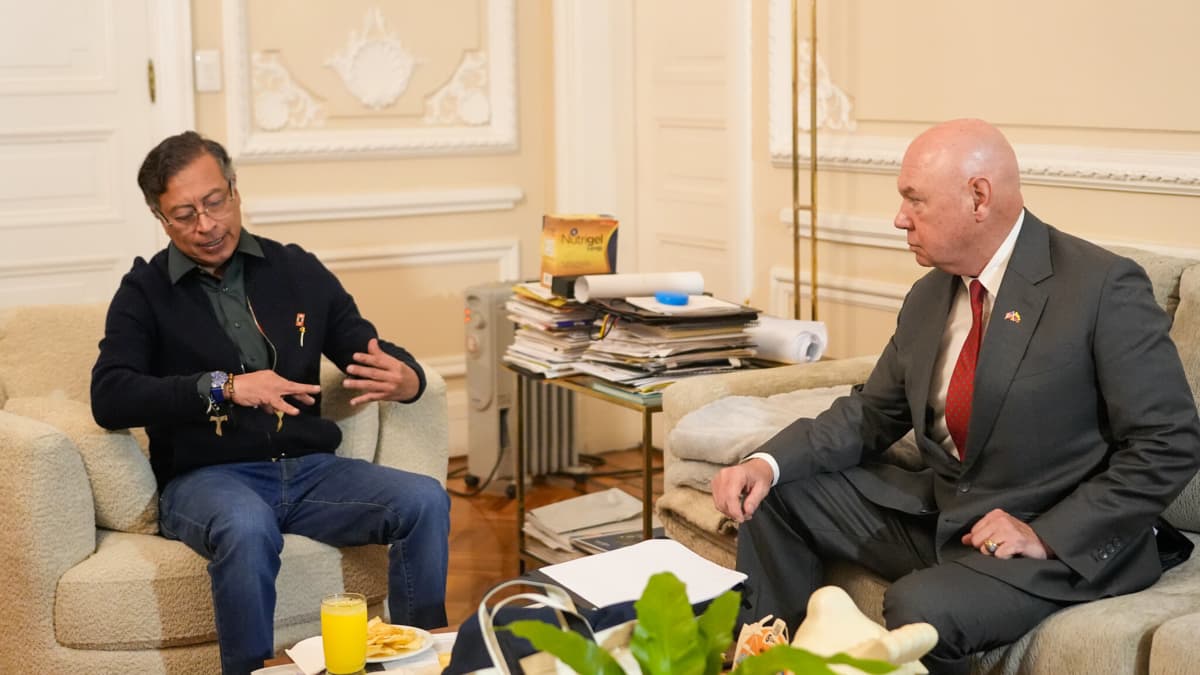Nearly 48 hours after the outbreak of the most serious crisis with the United States in the country's modern history—in which President Donald Trump even called President Gustavo Petro a"drug trafficking leader"—no solution is in sight.
The White House still hadn't officially commented on the possibility of new tariffs against the country last night. Meanwhile, President Petro and his Foreign Minister, Rosa Villavicencio, decided to keep Ambassador Daniel García-Peña, the only official with any effective dialogue with the Trump administration, in Bogotá for consultations.
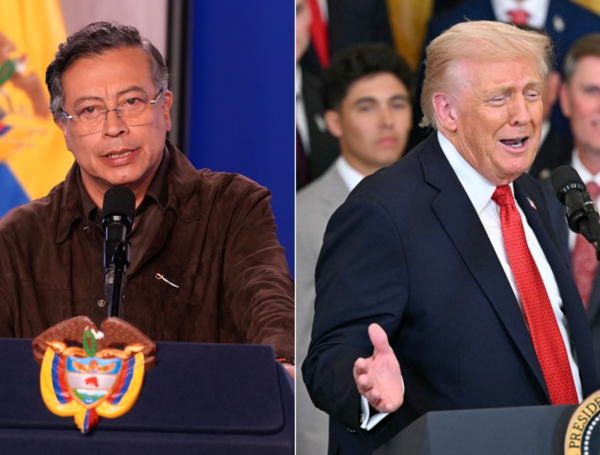
A meeting between the head of state and the US chargé d'affaires in Colombia, John McNamara, took place at the Palace, but no statements were made."He has official reasons," President Petro had said minutes earlier in an interview with Daniel Coronell. But in the same conversation, he maintained his pugnacious tone toward Trump—one of the triggers of the critical situation between the two governments—and also downplayed the real impact of a tariff increase on Colombian products in its main market, the United States.
Unlike what happened on January 26—the first clash between Presidents Petro and Trump—the Colombian Foreign Ministry did not appear to have prioritized seeking formal and informal channels with Washington to try to defuse the confrontation. Former ambassador and foreign minister Luis Gilberto Murillo, who was instrumental in resolving the incident nine months ago, offered his good offices to establish a channel of communication with his contacts in the US, but at least as of last night, he had not received any information from either the Casa de Nariño or the San Carlos Palace.
Despite the government's apparent lack of interest in addressing the situation, business leaders and unions continued to call for dialogue and prioritizing bilateral interests. Furthermore, as they did in January, they have been actively seeking allies in the effort to avoid harm to the country.
Meetings between President Petro, Vice President Francia Márquez, the Foreign Ministry, and the Ministries of Defense, Agriculture, and Commerce were announced yesterday morning, as they have cooperation issues with the United States on their daily agendas.
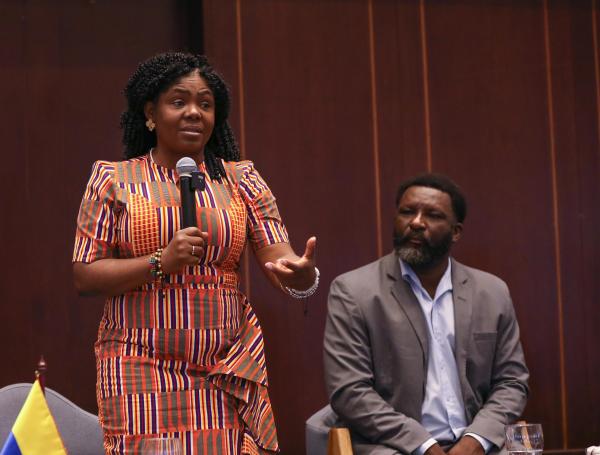
Yesterday, early in the morning, President Petro proposed via his X account that, instead of imposing new tariffs, the United States eliminate all current tariffs on"Colombian agricultural and agro-industrial production." This, he said, was intended to"strengthen lawful agricultural production, invest in agrarian reform so that farmers move to fertile lands near cities and do not adopt the jungle as a means of survival." He soon deleted the message and replaced it with one in which he continued to question the US president.
“The FTA (Free Trade Agreement) is de facto suspended by the unilateral decision of the US government. By imposing 10% tariffs, the FTA treaty has already been violated, and the old tariff preferences that kept Colombia under US control have been nullified,” he said in an opening paragraph, before later saying that he would respond “intelligently” to Trump’s actions. His words suggest that the Casa de Nariño (Narino House of Representatives) is considering the possibility of retaliation if tariffs are raised: “The Ministry of Commerce has the decrees, which I have not yet signed, with a Colombian position in defense of national labor and the life of humanity.”
He echoed that same stance in his conversation with Coronell, in which he made harsh accusations against Trump, asserted—without evidence—that the Free Trade Agreement with the United States supposedly contributed to the surge in drug crops and cocaine production in Colombia, and defended Nicolás Maduro's regime, not without harsh words for Nobel Peace Prize laureate María Corina Machado. Without naming her directly, he said that anyone who invites a foreign force to invade their country"is despicable."
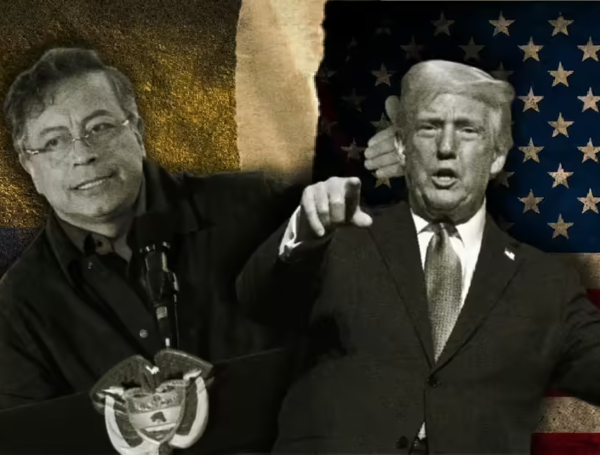
Analysts and international relations experts assert that the lack of leadership in the Foreign Ministry and the deinstitutionalization of the diplomatic service are taking their toll at a critical moment."The administration has not been the most successful," noted internationalist Juan Nicolás Garzón of the University of La Sabana.
Unlike the January crisis, the Foreign Ministry has not been the linchpin of the damage control strategy, as Minister Rosa Villavicencio's more activist stance, currently without a visa to the United States, minimizes its room for maneuver. In the task of trying to rebuild dialogue with Washington, Ambassador García-Peña is doing a solitary job.
Former Foreign Minister Julio Londoño was also critical. “A call for consultations implies a suspension of relations between the two countries. It's not a rupture, but it's a first step in that direction. When one country protests to another for any reason, it calls the ambassador for consultations, and that's the situation that's occurring between the two countries,” he emphasized.
Londoño believes that an essential first step is to avoid"microphone diplomacy." "A situation as extremely delicate as this can't be handled based on tweets or improvisations," he said.
Beyond the official stance, other political and economic actors have sought other channels to try to contain the damage.
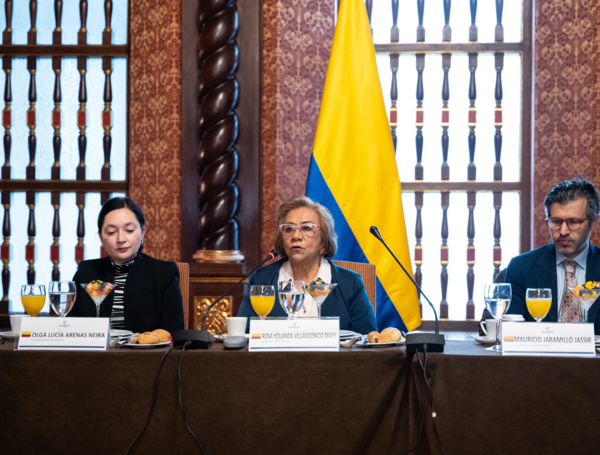
Former ambassador and presidential candidate Juan Carlos Pinzón traveled to the United States."I'm here to defend Colombians, to defend Colombia, and to defend Colombian jobs," he stated.
The unions have also taken action."We have sent messages to both the national government and the United States to remind them of the effects a tariff war would have on both countries," Jorge Bedoya, president of the SAC, told EL TIEMPO.
Sources close to the Executive branch claim that President Petro is offended by Trump's remarks, which run counter to his administration's cocaine seizures, which have continued to reach record levels year after year over the past decade.

